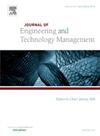当数字平台与传统相遇:文化遗产中的数字创新
IF 3.9
3区 管理学
Q2 BUSINESS
Journal of Engineering and Technology Management
Pub Date : 2025-07-01
DOI:10.1016/j.jengtecman.2025.101896
引用次数: 0
摘要
文化创意产业的数字化往往遵循实体和数字文物融合的道路,导致重塑价值链的数字平台的兴起。然而,文化遗产部门经历了一种不同形式的数字化转型。这一领域的数字平台创造了一种融合了传统与创新的“数字化”体验。本研究探讨了数字平台在促进文化遗产行业社会和经济发展方面的作用,重点关注b谷歌Arts &;文化,由b谷歌于2011年推出。通过纵向案例研究,我们探讨了数字平台如何通过提高效率、互补性、新颖性和锁定机制为多个利益相关者(博物馆、用户和平台本身)创造价值。我们的研究结果表明,数字平台引入了一个更加动态和复杂的生态系统,推动了增长和创新,同时将文化组织从集成供应链转变为战略合作伙伴网络。数字平台在促进社会和经济发展方面的成功取决于博物馆内化遗产知识的能力,以及平台使用先进的数字工具重新解释这些知识的能力。这项研究通过证明数字平台增强了文化遗产体验,而不是破坏传统,为创新和战略管理方面的文献做出了贡献。此外,谷歌Arts &;文化在非营利性模式下运作,使文化民主化,他们通过数据聚合获取重要价值,这可能在训练人工智能系统中发挥关键作用。本文章由计算机程序翻译,如有差异,请以英文原文为准。
When digital platforms meet tradition: Phygital innovation in the cultural heritage
The digitalization of cultural and creative industries has often followed a path of convergence between physical and digital artefacts, leading to the rise of digital platforms that reshape value chains. However, the cultural heritage sector has undergone a different form of digital transformation. Digital platforms in this field create a “phygital” experience that blends tradition with innovation. This study examines the role of digital platforms in fostering social and economic development in the cultural heritage sector, focusing on Google Arts & Culture, launched by Google in 2011. Through a longitudinal case study, we explore how digital platforms create value for multiple stakeholders—museums, users, and the platform itself—by enhancing efficiency, complementarities, novelty, and lock-in mechanisms. Our findings indicate that digital platforms introduce a more dynamic and complex ecosystem that drives growth and innovation while shifting cultural organizations from integrated supply chains to networks of strategic partnerships. The success of digital platforms in promoting social and economic development depends on museums’ ability to internalize legacy knowledge and platforms’ capacity to reinterpret this knowledge using advanced digital tools. This research contributes to the literature on innovation and strategic management by demonstrating that, rather than disrupting tradition, digital platforms enhance the cultural heritage experience. Additionally, while platforms like Google Arts & Culture operate under a non-profit model to democratize culture, they capture significant value through data aggregation, which may play a key role in training artificial intelligence systems.
求助全文
通过发布文献求助,成功后即可免费获取论文全文。
去求助
来源期刊
CiteScore
8.00
自引率
6.20%
发文量
29
审稿时长
>12 weeks
期刊介绍:
The Journal of Engineering and Technology Management (JET-M) is an international scholarly refereed research journal which aims to promote the theory and practice of technology, innovation, and engineering management.
The journal links engineering, science, and management disciplines. It addresses the issues involved in the planning, development, and implementation of technological capabilities to shape and accomplish the strategic and operational objectives of an organization. It covers not only R&D management, but also the entire spectrum of managerial concerns in technology-based organizations. This includes issues relating to new product development, human resource management, innovation process management, project management, technological fusion, marketing, technological forecasting and strategic planning.
The journal provides an interface between technology and other corporate functions, such as R&D, marketing, manufacturing and administration. Its ultimate goal is to make a profound contribution to theory development, research and practice by serving as a leading forum for the publication of scholarly research on all aspects of technology, innovation, and engineering management.

 求助内容:
求助内容: 应助结果提醒方式:
应助结果提醒方式:


